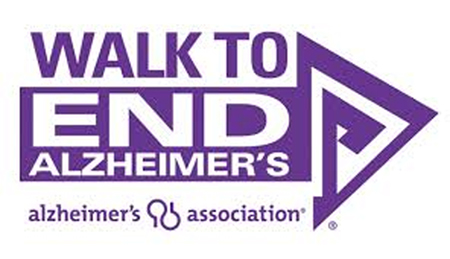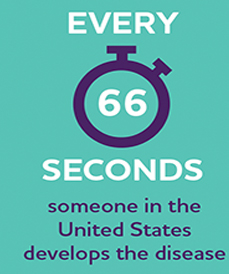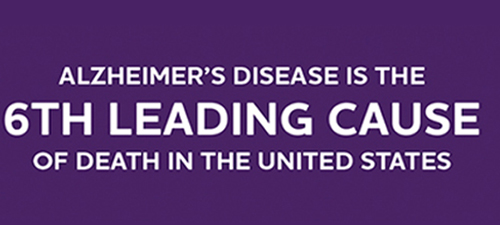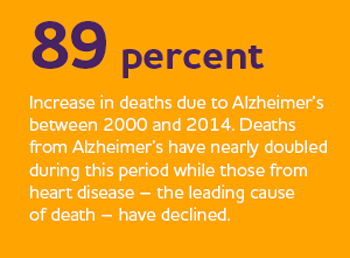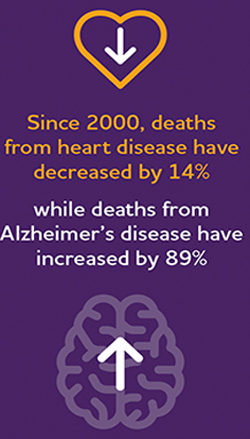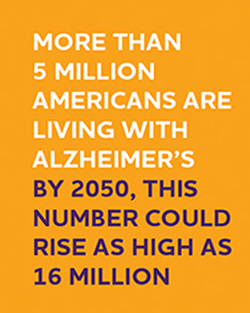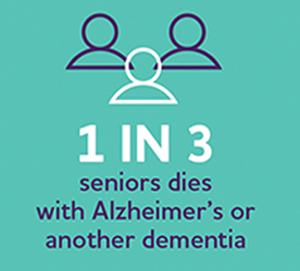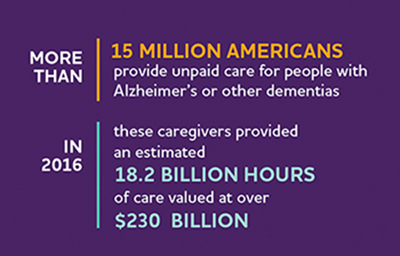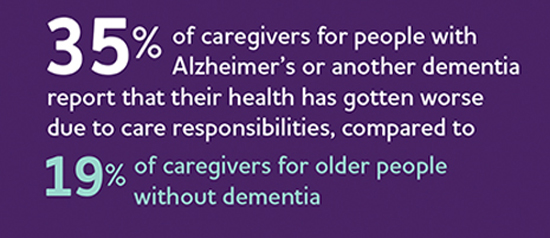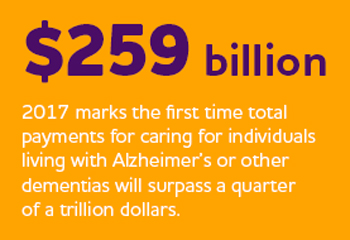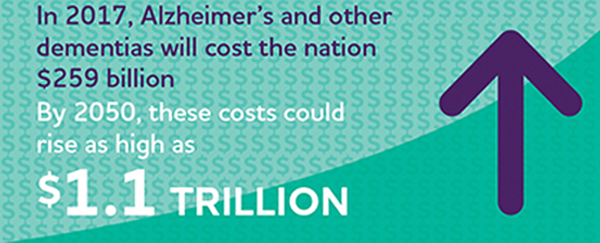ALZHEIMER'S
In August and September, ABC launched a campaign to help raise funds for the Alzheimers Association, leading ultimately to joining in the Walk to End Alzheimer's on September 17th.
We offered many incentives for our customers to donate, culminating in drawings at the Walk for a number of $200 gift certificates to those who made a donation. A percentage of our sales September through October will be donated as well.
For the entire month of October, we are continuing to collect donations, as well as offering a few gifts in return for donations at our office. These include key chains and Purple Alzheimer’s Association awareness bracelets.
WHY ALZHEIMER'S?
You may wonder why we chose finding a cure for Alzheimer’s to be such a worthwhile cause. There are many reasons (which we will tell you about) but the most important to us is the fact that it is almost impossible to find a single person who has not been negatively impacted in some way by this disease. My favorite cousin, her grandfather, his mother, and the list goes on and on.
The Alzheimer’s Association is the only organization in Central New York committed to supporting individuals with a form of dementia and their caregivers, and finding a cure.
In this article, with the help of information from the Alzheimer’s Association, we would like to set forth pertinent facts about this disease. Some of these may even surprise you.
HERE ARE THE FACTS...
PREVALENCE & MORTALITY
Every 66 seconds, someone in the U.S. develops Alzheimer's.
Because of the increasing number of people age 65 and older in the U.S., particularly the oldest-old, the number of new cases of Alzheimer's and other dementias is projected to soar.
By mid-century, someone in the U.S. will develop the disease every 33 seconds!
Alzheimer's disease is the 6th leading cause of death in the United States.
It is the 5th leading cause of death among those age 65 and older and a leading cause of disability and poor health.
Alzheimer's is the only top 10 cause of death that cannot be prevented, cured or even slowed! (Though we are working on it)
Deaths from other major causes have decreased significantly, but those from Alzheimer’s disease have increased significantly.
Among people age 70, 61 per cent of those with Alzheimer's are expected to die before the age of 80 compared with 30 percent of people without Alzheimer's. This is a rate twice as high!
Between 2000 and 2014, deaths from Alzheimer’s disease as recorded on death certificates increased 89 percent while heart disease decreased 14 per cent.
Of the estimated 5.5 million Americans living with alzheimer's dementia in 2017, an estimate 5.3 million are age 65 and older and approximately 200,000 individuals are under age 65 and have younger-onset Alzheimer's.
- One in 10 people age 65 and older has Alzheimer's dementia.
- Almost 2/3 of Americans with Alzheimer's are women.
- African-Americans are about twice as likely to have Alzheimer's or other dementias as older whites.
- Hispanics are about 1 and 1/2 times as likely to have Alzheimer's or other dementias as older whites.
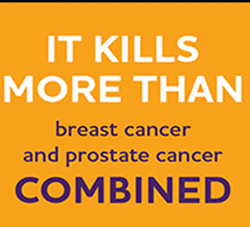
TOLL ON CAREGIVERS
In 2016, 15.9 million family and friends provided 18.2 billion hours of unpaid assistance to those with Alzheimer's and other dementias, a contribution to the nation valued at $230.1 billion.
- Approximately 2/3 of caregivers are women, and 34 percent are age 65 or older.
- 41 percent of caregivers have a household income of $50,000 or less.
- Approximately 1/4 of dementia caregivers are 'sandwich generation' caregivers meaning they care not only for an aging parent, but also for children under age 18.
Alzheimer's takes a devastating toll on caregivers. Compared with caregivers of people without dementia, twice as many caregivers of those with dementia indicate substantial emotional, financial, and physical difficulties.
HEALTH COSTS
Dementia is one of the costliest conditions to society.
Total payments in 2017 for all individuals with Alzheimer's or other dementias are estimated at $259 billion.
Medicare and Medicaid are expected to cover $175 billion or 67 percent of the total health care and long-term care payments for people with Alzheimers or other dementias.
Out-of-pocket spending is expected to be 56 billion.
Health care costs increase with the presence of dementia.
- People with Alzheimer's or other dementias have twice as many hospital stays per year as other older people.
- Medicare beneficiaries with Alzheimer's or other dementias are more likely than those without dementia to have other chronic conditions.
- People with Alzheimer's or other dementias make up a large proportion of all elderly people who receive adult day services and nursing home care.
WHAT'S NEW IN ALZHEIMER'S RESEARCH AT THIS TIME?
When assumptions and definitions of disease are no longer consistent with the scientific evidence and no longer serve our health care needs, we need to change what we are doing.
Thus, the development and validation of Alzheimer’s disease biomarkers, including those detectable in the blood or cerebral spinal fluid, or through neuroimaging, is now a top research priority.
This has the potential to markedly change how we diagnose Alzheimer’s disease, and as a result, how we count the number of people with this disease.
The advance of this research for a biomarker-based method for diagnosis and treatment at the earliest stages of Alzheimer’s disease will lead the way to have Alzheimer’s disease placed in the same category as other chronic diseases, such as cardiovascular disease or diabetes which can be readily identified with biomarkers and treated before irrevocable disability occurs.
DO YOU KNOW WHAT YOUR DONATIONS CAN BUY?
- $10 provides 15 minutes of telephone support on a 24-hour helpline to a person newly diagnosed with Alzheimer's or a caregiver in need of assistance.
- $50 offers a family peace of mind with one year of a MedicAlert+SafeReturn identification and safety service.
- $100 provides a care consultation between a dementia care expert and a family dealing with a diagnosis of Alzheimer's or other dementia.
- $250 provides an educational program free of charge to the general public at a library, church or community center.
- Any amount of money donated to Alzheimer's and dementia can be used to further research to find a cure and is greatly appreciated.
- TO DONATE TO THE FIGHT TO CURE ALZHEIMER'S, PLEASE GO TO THE ALZHEIMER'S ASSOCIATION for more information.
"The Cleanest Clean You've Ever Seen."
by
ABC Oriental Rug & Carpet Cleaning Co.
130 Cecil Malone Drive Ithaca, NY 14850
607-272-1566
The 10 SIGNS & SYMPTOMS of ALZHEIMERS
Memory loss that disrupts daily life may be a symptom of Alzheimer's or another dementia.
Alzheimer's is a brain disease that causes a slow decline in memory, thinking, and reasoning skills.
There are 10 warning signs and symptoms. Every individual may experience one or more of these signs in a different degree. If you notice any of them, please see a doctor.
1. MEMORY LOSS THAT DISRUPTS DAILY LIFE
One of the most common signs of Alzheimer's is memory loss, especially forgetting recently learned information.
Others include forgetting important dates or events, asking for the same information over and over, increasingly needing to rely on memory aids (e.g., reminder notes or electronic devices) or family members for things they used to handle on their own.
What's a typical age-related change?
Sometimes forgetting names or appointments,but remembering them later.
2. CHALLENGES IN PLANNING OR SOLVING PROBLEMS
Some people may experience changes in their ability to develop and follow a plan or work with numbers.
They may have trouble following a familiar recipe or keeping track of monthly bills.
They may have difficulty concentrating and take much longer to do things than they did before.
What's a typical age-related change?
Making occasional errors when balancing a checkbook.
3. DIFFICULTY COMPLETING FAMILIAR TASKS AT HOME, AT WORK OR AT LEISURE
People with Alzheimer's often find it hard to complete daily tasks.
Sometimes, people may have trouble driving to a familiar location, managing a budget at work or remembering the rules of a favorite game.
What's a typical age-related change?
Occasionally needing help to use the settings on a microwave or to record a television show.
4. CONFUSION WITH TIME OR PLACE
People with Alzheimer's can lose track of dates, seasons, and the passage of time.
They may have trouble understanding something if it is not happening immediately.
Sometimes they may forget where they are or how they got there.
What's a typical age-related change?
Getting confused about the day of the week but figuring it out later.
5. TROUBLE UNDERSTANDING VISUAL IMAGES AND SPATIAL RELATIONSHIPS
For some people, having vision problems is a sign of Alzheimer's.
They may have difficulty reading, judging distance, and determining color or contrast, which may cause problems with driving.
What's a typical age-related change?
Vision changes related to cataracts.
6. NEW PROBLEMS WITH WORDS IN SPEAKING OR WRITING
People with Alzheimer's may have trouble following or joining a conversation.
They may stop in the middle of a conversation and have no idea how to continue or they may repeat themselves.
They may struggle with vocabulary, have problems finding the right word or call things by the wrong name (e.g., calling a 'watch' a 'hand-clock').
What's a typical age-related change?
Sometimes having trouble finding the right word.
7. MISPLACING THINGS AND LOSING THE ABILITY TO RETRACE STEPS
A person with Alzheimer's disease may put things in unusual places.
They may lose things and be unable to go back over their steps to find them again.
Sometimes, they may accuse others of stealing. This may occur more frequently over time.
What's a typical age-related change?
Misplacing things from time to time and retracing steps to find them.
8. DECREASED OR POOR JUDGMENT
People with Alzheimer's may experience changes in judgment or decision-making.
For example, they may use poor judgment when dealing with money, giving large amounts to telemarketers.
They may pay less attention to grooming or keeping themselves clean.
What's a typical age-related change?
Making a bad decision once in awhile.
9. WITHDRAWAL FROM WORK OR SOCIAL ACTIVITIES
A person with Alzheimer's may start to remove themselves from hobbies, social activities, work projects or sports.
They may have trouble keeping up with a favorite sports team or remembering how to complete a favorite hobby.
They may also avoid being social because of the changes they have experienced.
What's a typical age-related change?
Sometimes feeling weary of work, family, and social obligations.
10. CHANGES IN MOOD AND PERSONALITY
The mood and personalities of people with Alzheimer's can change.
They can become confused, suspicious, depressed, fearful or anxious.
They may be easily upset at home, at work, with friends or in places where they are out of their comfort zone.
What's a typical age-related change?
Developing very specific ways of doing things and becoming irritable when a routine is disrupted.
WHAT TO DO IF YOU NOTICE ANY OF THE 10 WARNING SIGNS OF ALZHEIMER'S IN YOURSELF OR SOMEONE YOU KNOW...
SCHEDULE AN APPOINTMENT WITH A DOCTOR AND GET CHECKED.
EARLY
DETECTION
MATTERS
